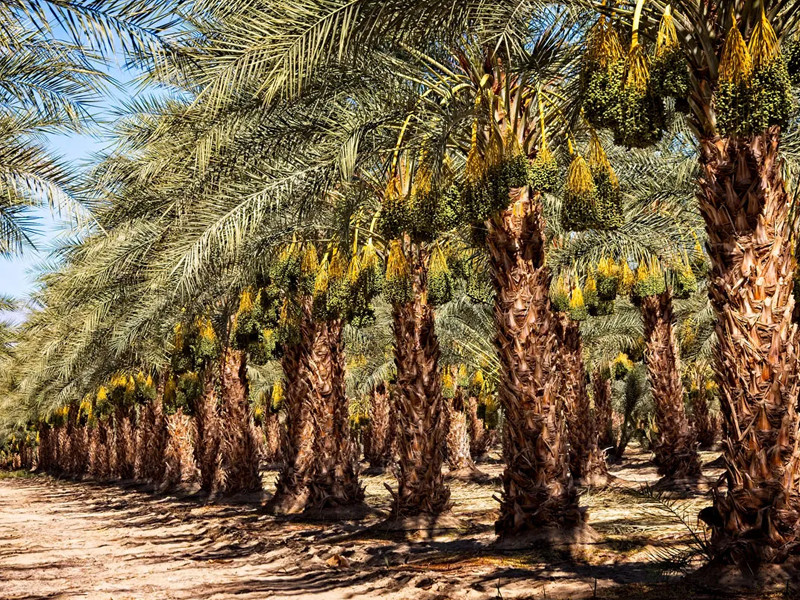
Fruit experts suggest that establishing a tissue culture laboratory, proper cold storage facilities, providing pollination equipment, and cultivating exotic date palm varieties in the Nara tehsil of Khairpur district could increase production from 5.5 million tonnes to 10 million tonnes, while doubling the country's fruit exports.
Egypt is currently the largest producer of dates globally, with 13 million tonnes, while Saudi Arabia ranks first in exports with 11 million tonnes and is the second-largest producer. Experts highlighted that India provides a 90% subsidy to its growers to boost the production of exotic varieties from Gulf countries. They stressed the need for improved processing, packaging, preservation, and marketing, noting that foreign countries often re-export Pakistani dates with value addition.
Khairpur produces 60% of Pakistan's dates, with 30% coming from Balochistan, and 10% from Punjab and Khyber-Pakhtunkhwa. To bolster export and growth, the challenges faced by growers in these regions must be addressed.
"Pakistan is currently producing 5.5 million tonnes of dates, which could be increased to 10 million tonnes. The current exports range from 2 million tonnes to 2.5 million tonnes, but this could rise to around 5 million tonnes. The country ranks 5th in production and 10th in exports globally," said veteran date palm farmer and agriculture expert Ghulam Qasim Jiskani. He shared this while speaking at the "First Khairpur Date Palm Festival in Karachi: Celebrating the Sweetness of Sindh," organised by Sindh Agriculture University (SAU) in collaboration with DHA Creek Club Karachi and the Sindh government on Saturday evening.
Sharing information with The Express Tribune, Jiskani noted that 80% of the Aseel and 5% of the Karbalain varieties are grown in Sindh, with Aseel being a popular table fruit. He mentioned that although there were once around 250 to 300 varieties in Sindh, this number has dwindled to around 50 to 60 due to a lack of proper attention and research.
He highlighted that the date season, from July to September, coincides with the monsoon in Sindh. He urged the government to support growers in protecting their crops from rain by providing tailored-sheet coverings for the fruit on plants. Additionally, he called for the establishment of a tissue culture laboratory, proper cold storage facilities, and essential pollination equipment to further enhance growth.
DHA Creek Club Karachi Deputy Secretary Col Saeed Alam and DHA Creek Club Karachi Manager Maj Farrukh Siddiqui briefed journalists about the event, highlighting the importance and marketing of dates. Over two dozen stalls displayed a variety of date palm products, while cultural activities showcasing Sindh's folk music and dance entertained visitors and raised awareness about date production, marketing, and export.
Agriculturalist Dr Mushtaq Soomro stressed the need for training growers in value addition, such as producing syrup, sauces, and other by-products popular in Western countries. He noted that foreign countries also purchase dates for making top-quality liquor served at national gatherings.
Director of the Date Palm Research Institute at Shah Abdul Latif University Khairpur, Ameer Ahmed Mirbahar, attracted many visitors by serving the Ajwa variety of Saudi Arabia, grown in the university's orchard. His stall also provided information on cultivating branded varieties.
Exotic varieties displayed at the festival included Ambara, Medjool, Sultana, Ajwa, Safavi, and Rotana. Local and indigenous varieties included Aseel, Karbalain, Fasli, and Eden Shahi. The rates for exotic varieties like Medjool and Ambara ranged from Rs3,000 to Rs10,000 per kilogramme and Rs2,000 to Rs5,000 per kilogramme, respectively, while indigenous varieties were priced between Rs200 to Rs500 per kilogramme, depending on the fruit in local markets.


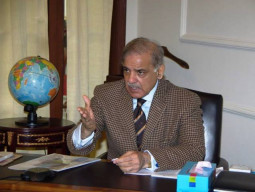



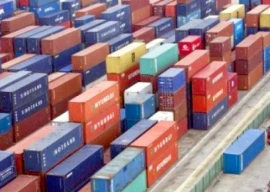

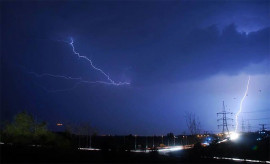

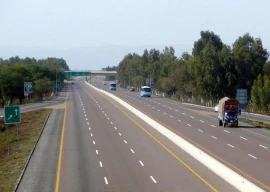








COMMENTS
Comments are moderated and generally will be posted if they are on-topic and not abusive.
For more information, please see our Comments FAQ